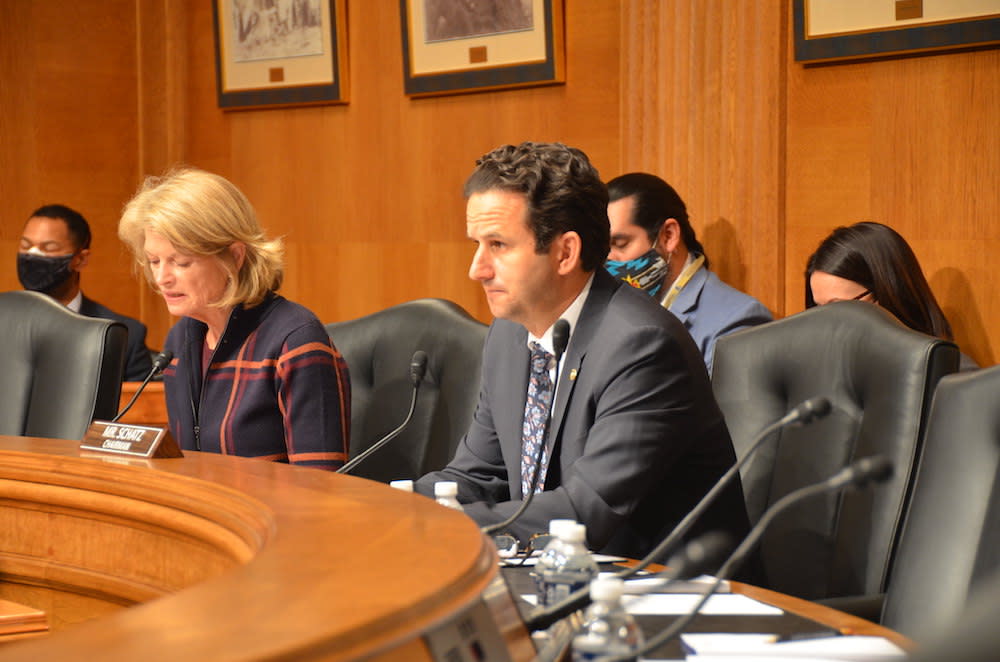Senators Push Universities, Museums to “Expeditiously Return” Native Ancestors

- Oops!Something went wrong.Please try again later.
WASHINGTON – A bipartisan group of 13 U.S. Senators is asking universities and museums with large collections of Native American human remains why they’ve failed to repatriate them to tribes—more than 30 years after a federal law was passed that compelled them to do so.
In letters sent to the University of California-Berkeley, Harvard University, Illinois State Museum, Indiana University, and the Ohio History Connection, the senate group—led by Sens. Brian Schatz (D-HI) and Lisa Murkwoski (R-AK) of the Senate Committee on Indian Affairs—urged the institutions to comply with the federal Native American Graves Protection and Repatriation Act (NAGPRA) and “expeditiously return” cultural items and ancestral remains.
Signed into law in 1990, NAGPRA directs federal agencies and museums with possession or control over holdings or collections of Native American human remains and funerary objects to inventory them, identify their geographic and cultural affiliation, and notify the affected Indian tribes or Native Hawaiian organization.
The five institutions that received the letters possess some of the largest collections of Native American human remains, according to federal records. Many were identified in recent media reports, including Native News Online reporting and a ProPublica and NBC News investigation that highlights how prestigious universities and museums have delayed repatriation requests and failed the mandate set by NAGPRA.
“Delayed repatriation is delayed justice for Native peoples,” the senators said in letters to the five institutions. “For too long, Native ancestral remains and cultural items have been unconscionably denied their journey home by institutions, desecrated by scientific study, publicly displayed as specimens, left to collect dust on a shelf, or simply thrown in a box and forgotten in a museum storeroom.”
In the letters, the senators requested that the universities and museums provide an update over the next 60 days on their current process and pace of repatriation, as well as information about their policies and practices pursuant to NAGPRA.
The letters were also signed by Senators Catherine Cortez Masto (D-NV), Martin Heinrich (D-NM), Mazie Hirono (D-HI), Ben Ray Luján (D-NM), Patty Murray (D-WA), Alex Padilla (D-CA), Kyrsten Sinema (I-AZ), Tina Smith (D-MN), Dan Sullivan (R-AK), Jon Tester (D-MT), and Elizabeth Warren (D-MA).
The letters note positive impacts that NAGPRA has created, but also mentions “troubling testimony” about the failure of institutions to complete repatrations in a timely manner.
“While NAGPRA has had positive and far-reaching impacts, such as improved relationships between museums, institutions, federal agencies, and Native peoples, and significant, successful repatriation of many cultural items and ancestral remains, Congress continues to receive troubling testimony detailing ongoing issues related to the timely completion of NAGPRA repatriations,” the senators write.
National Congress of American Indians President Fawn Sharp issued a statement commending the Senators' bipartisan efforts. "For centuries, our cultural items, our sacred items, and our ancestors have been taken from us and kept from us, but today's efforts acknowledge what we have long said: there is no acceptable reason to continue this practice and no acceptable reason for delays—now is the time to right this historic and ongoing wrong," Sharp said.
About the Author: "Brian Edwards is the interim managing editor of Native News Online and Tribal Business News. "
Contact: bedwards@indiancountrymedia.com

